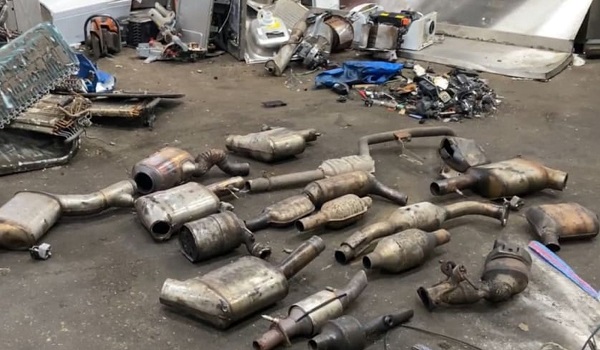Resourcing of public protection is ‘unsustainable’
The police model for public protection in Northern Ireland “presents an immediate risk” as caseloads have grown significantly and the number of officers available has reduced.
In his latest report, published on Wednesday (October 23), the Chief Inspector of Criminal Justice in Northern Ireland (CICJNI) praised partnership working in the province but raised concerns over the resources to manage the growing number of offenders who are part of the Public Protection Arrangements Northern Ireland (PPANI).
The number of Category 1 offenders – those assessed to pose a lower level of risk to the public but whose management fell primarily to the police alone – has grown by around 30 per cent between 2011 and October 2018.
The report expresses concern that officer caseloads exceed acceptable levels. For example, due to sickness, in the South Eastern area there was only one police officer available to manage 200 cases. In Belfast, each officer was managing an average of 80 individuals.
CICJNI Brendan McGuigan said: “Inspectors were concerned that in the face of a lack of available officers, a need for more technological training and the prospect of the ongoing and increasing demand for the police to deal with significant numbers of Category 1 offenders, the current policing resource model was unsustainable and presented an immediate risk which must be addressed.
“As a result, we have recommended the Police Service of Northern Ireland (PSNI) should within the next six months develop an action plan to sustain the resourcing of its Public Protection Units and a system to cope with the demands of Category 1 offenders.
“With PPANI case numbers expected to continue to grow, it will be increasingly important that the agencies involved provide consistency in relation to key personnel, smooth succession planning and an ongoing commitment to resourcing, in particular, the PSNI’s Public Protection Unit, to risk assess and manage Category 1 offenders.”
Mr McGuigan’s report, Lawful Duty, said levels of engagement between the various agencies within the PPANI remained high and that progress has been made in relation to governance arrangements.
Category 3 offenders – those assessed as posing the greatest level of risk – were rigorously managed by the co-located Public Protection Team made up of police, probation and social services staff, with their cases reviewed every 16 weeks at Local Area Public Protection Panels.
However, while each of the PPANI bodies continued to dedicate experienced staff to the public protection arrangements, the inspection found maintaining the required level of resource was a challenge.
“Inspectors identified that while police officers engaged in this area of work were well motivated, at the time of inspection fieldwork, sickness and other absence levels along with staff turnover and the need to manage increasing numbers of cases, were causing considerable pressure. Similarly, prison service staff were frequently extracted from PPANI duties to undertake other responsibilities within the prison environment,” Mr McGuigan said.
They also identified that only the police had access to the Violent and Sex Offender Register (ViSOR) database in Northern Ireland, whereas prison and probation service staff have access in England and Wales.
The chief inspector called for work to be done by the PPANI Strategic Management Board to develop an action plan for the roll-out and adoption of a multi-agency information sharing system by all the core PPANI agencies.
Mr McGuigan also recommended that the PSNI develops the capability of its officers to access and interrogate technology, such as mobile devices and computers held by PPANI offenders, to enable officers to identify if their electronic equipment was being used appropriately.
The PSNI has been approached for comment.







